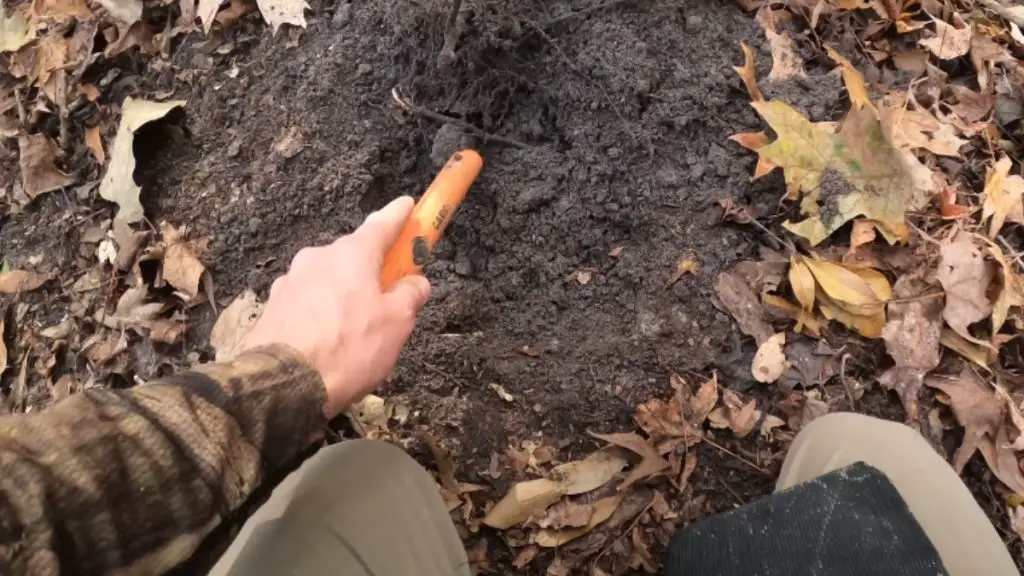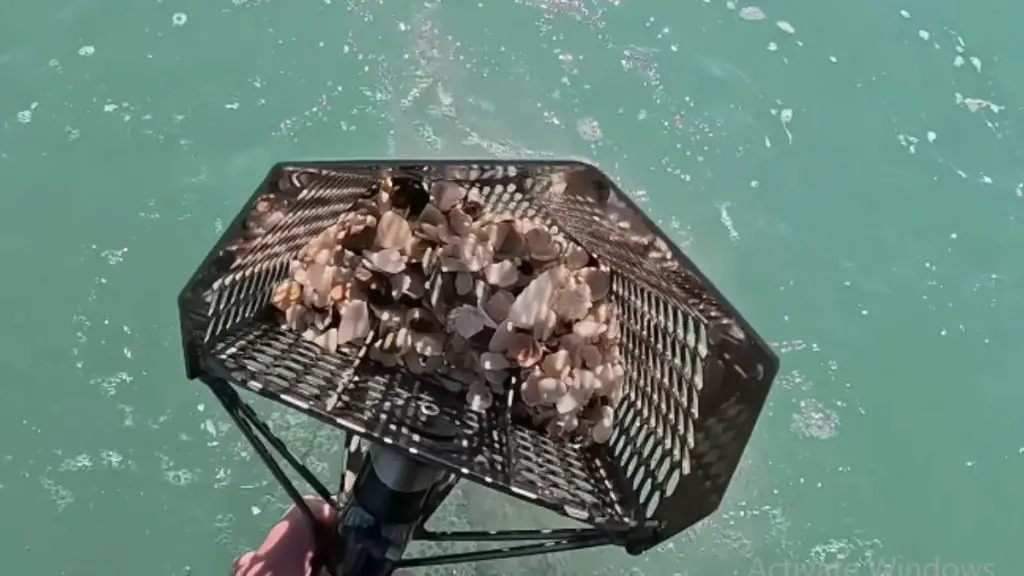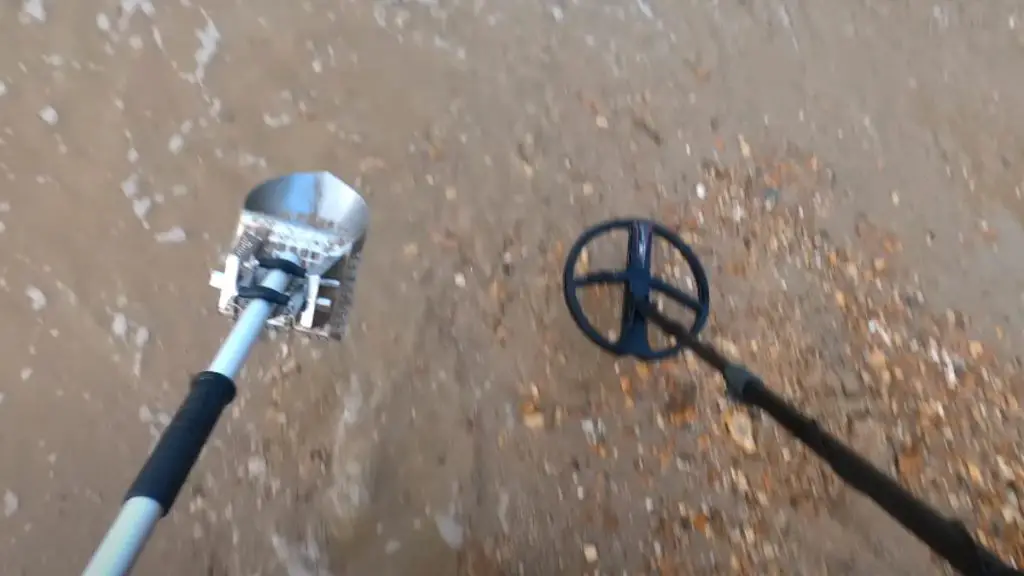Metal detecting in New York is an exciting adventure that thousands of people enjoy every year.
This hobby combines the thrill of exploration with the potential for discovering hidden treasures, ranging from ancient coins to valuable relics.
In this article, we’ll discuss the basics of metal detecting in New York, highlight must-visit spots, and share tips.
Let’s dive in!
Metal Detecting In New York

Metal detecting in New York can be a fascinating activity because of the state’s rich history and diverse population.
New York has a long history, from Native American cultures and early European settlers to its role in the Revolutionary War and as a gateway for immigrants at Ellis Island.
This history means there could be a wide variety of interesting items waiting to be found.
New York’s large and diverse population, currently around 19.45 million people, also means that there have been countless activities, gatherings, and developments over the years.
This increases the chances of finding unique and valuable objects with a metal detector.
The state is particularly good for metal detecting because of its many beaches, parks, and historical sites.
However, you should check local laws and obtain necessary permissions, as some areas may have restrictions.
Some of the best places for metal detecting include the beaches of Long Island, such as Jones Beach or Robert Moses State Park.
Upstate New York offers natural beauty and potential historical finds in areas like the Adirondacks or the Catskills.
Historical sites, although requiring permission, can sometimes allow detecting and might yield historical artifacts.
Is metal detection legal in New York?
Yes, using a metal detector is legal in New York, but there are rules you need to follow. In state parks, you may need a permit, and in some places, metal detecting is not allowed at all.
For example, it’s not allowed in state parks or historic sites without getting a special permit first.
Also, in New York City, you need to have a permit to use a metal detector in public parks, and there are only certain areas where you can look for metal objects.
So, you should ensure to check the specific rules for the area you’re interested in before you start your metal detecting adventure.
Penalties for Violating Metal Detecting Laws in New York
Breaking metal detecting laws in New York can result in fines, imprisonment, and the loss of any items found.
For example, disturbing artifacts over 100 years old without a permit can lead to a fine of up to $2,000 and up to one year in jail.
Not obtaining a permit for archaeological research can result in a fine of up to $1,000 and up to six months in jail.
Where can I metal detect in New York?
1. Private Properties
You can metal detect on private lands; with the owner’s explicit permission. However, you should ensure you have written consent to avoid any legal issues.
2. Beaches
Some public beaches may allow metal detecting during off-season months or in designated areas. But you should check local ordinances or contact local authorities for specific rules.
| Beach Name | Location | Metal Detecting Status |
| Jones Beach State Park | Long Island, NY | Requires Permit |
| Robert Moses State Park | Long Island, NY | Requires Permit |
| Sunken Meadow State Park | Long Island, NY | Requires Permit |
| Coney Island Beach | Brooklyn, NY | Check Local Regulations |
| Orchard Beach | Bronx, NY | Check Local Regulations |
| Rockaway Beach | Queens, NY | Check Local Regulations |
3. Parks
Local parks may have specific regulations regarding metal detecting. Some might allow it with restrictions or require a permit.
Contacting the park’s administration or local government will provide accurate information.
| Park Name | Metal Detection Status |
| Allegany State Park – Quaker Area | Contact Park |
| Bear Mountain State Park | Contact Park |
| Beaver Island State Park | Contact Park |
| Buttermilk Falls State Park | Contact Park |
| Caumsett State Historic Park Preserve | Contact Park |
| Chenango Valley State Park | Contact Park |
| Grafton Lakes State Park | Contact Park |
| Green Lakes State Park | Contact Park |
| Letchworth State Park | Contact Park |
| Minnewaska State Park Preserve | Contact Park |
| Niagara Falls State Park | Contact Park |
| Watkins Glen State Park | Contact Park |
4. Historical Sites
Generally, metal detecting is not allowed in historical sites, especially those managed by the state or federal government, due to the potential disturbance of historical artifacts.
| Historical Site | Metal Detecting Status |
| Bennington Battlefield State Historic Site | Contact Authorities |
| Clermont State Historic Site | Contact Authorities |
| Clinton House State Historic Site | Contact Authorities |
| Crailo State Historic Site | Contact Authorities |
| Crown Point State Historic Site | Contact Authorities |
| Darwin Martin House State Historic Site | Contact Authorities |
| Fort Montgomery State Historic Site | Contact Authorities |
| Fort Ontario State Historic Site | Contact Authorities |
| Ganondagan State Historic Site | Contact Authorities |
| Grant Cottage State Historic Site | Contact Authorities |
| Herkimer Home State Historic Site | Contact Authorities |
| Hyde Hall State Historic Site | Contact Authorities |
| Jay Heritage Center | Contact Authorities |
| John Brown Farm State Historic Site | Contact Authorities |
| John Burroughs Memorial State Historic Site | Contact Authorities |
| John Jay Homestead State Historic Site | Contact Authorities |
| Johnson Hall State Historic Site | Contact Authorities |
| Knox’s Headquarters State Historic Site | Contact Authorities |
| Lorenzo State Historic Site | Contact Authorities |
| National Purple Heart Hall of Honor | Contact Authorities |
| New Windsor Cantonment State Historic Site | Contact Authorities |
| Olana State Historic Site | Contact Authorities |
| Old Fort Niagara State Historic Site | Contact Authorities |
| Oriskany Battlefield State Historic Site | Contact Authorities |
| Philipse Manor Hall State Historic Site | Contact Authorities |
| Planting Fields Arboretum State Historic Park | Contact Authorities |
| Sackets Harbor Battlefield State Historic Site | Contact Authorities |
| Schoharie Crossing State Historic Site | Contact Authorities |
| Schuyler Mansion State Historic Site | Contact Authorities |
| Senate House State Historic Site | Contact Authorities |
| Sonnenberg Gardens & Mansion State Historic Park | Contact Authorities |
| Staatsburgh State Historic Site | Contact Authorities |
| Steuben Memorial State Historic Site | Contact Authorities |
| Stonewall Inn State Historic Site | Contact Authorities |
| Stony Point Battlefield State Historic Site | Contact Authorities |
| Walt Whitman Birthplace State Historic Site | Contact Authorities |
| Washington’s Headquarters State Historic Site | Contact Authorities |
5. National Forests and State Lands
These areas often require a permit for metal detecting, mainly if the activity is for archaeological purposes.
Recreational metal detecting might be allowed in certain areas but check with the managing agency first.
Metal detecting clubs in New York
1. Long Island Treasure Hunters Club
Location: Bohemia
Phone Number: Not provided
A well-established club with a supportive community that organizes regular excursions and meetings to share experiences and treasures.
2. E.A.R.T.H. – Electronic Archeological Recovery Th’Ers
Location: Durhamville
Known for its focus on electronic archaeological recovery, this club welcomes both beginners and experienced hunters, offering a wealth of knowledge and tips.
3. Southern Tier Metal Detectors Club
Location: Endicott
A club that caters to metal detecting enthusiasts in the Southern Tier region, fostering a friendly environment for members to learn and grow in the hobby.
4. Empire State Metal Detector Association
Location: Latham
This association is dedicated to promoting the hobby of metal detecting in New York, offering opportunities for members to engage in various types of treasure hunting activities.
5. Northeast Metal Detectors Club
Location: Capital District region of upstate New York
Phone Number: (518) 356-0564
A diverse club catering to all levels of metal detecting enthusiasts, providing a range of activities from coin shooting to relic hunting, with a welcoming and helpful community.
6. Westchester County, New York Metal Detecting Club
Location: White Plains
A unique club emphasizing camaraderie and knowledge-sharing among members, focusing on collaborative hunts and community engagement without formal structures or dues.
7. New York City’s ONLY Metal Detecting Club
Location: New York City
An exclusive club in NYC dedicated to metal detecting, offering a niche community for enthusiasts to connect and explore the city’s hidden treasures.
Is metal detecting allowed in NYS parks?
Yes, metal detecting is allowed in many New York State (NYS) parks, but there are specific rules you must follow.
Also, there are certain areas in parks where you can’t use metal detectors, like in protected historical or archaeological sites.
You can also find our guide on metal detection New Jersey, In Louisiana, metal detection Kentucky, and In West Virginia; for successful hunt.
Can you metal detect on BLM Land in New York?
Yes, you can use a metal detector on BLM (Bureau of Land Management) land in New York, but there are rules you need to follow.
Before you start, you should contact the local BLM office for specific guidelines and to see if you need a permit.
You should also not disturb historical or archaeological sites, and you must not remove any items you find from these places.
So, you can see the BLM New York Map before going to the metal detection.
Is there any buried treasure in New York?
There’s no confirmed buried treasure in New York like the kind you see in pirate movies.
However, New York has a rich history, and over the years, there have been stories and legends about hidden treasures from pirates and colonial times.
Some people enjoy searching for these treasures as a hobby, using metal detectors and exploring historical sites.

Frederick Perez is the founder of Scrape Dude. He loves exploring and finding hidden treasures in unexpected places. Frederick has been dumpster diving and gold panning for years, turning his hobby into our website to share his adventures. He’s known for his friendly advice and exciting stories, inspiring others to discover the joy in these unique hobbies. His expertise makes Scrape Dude a trusted and fun place to learn and explore.


